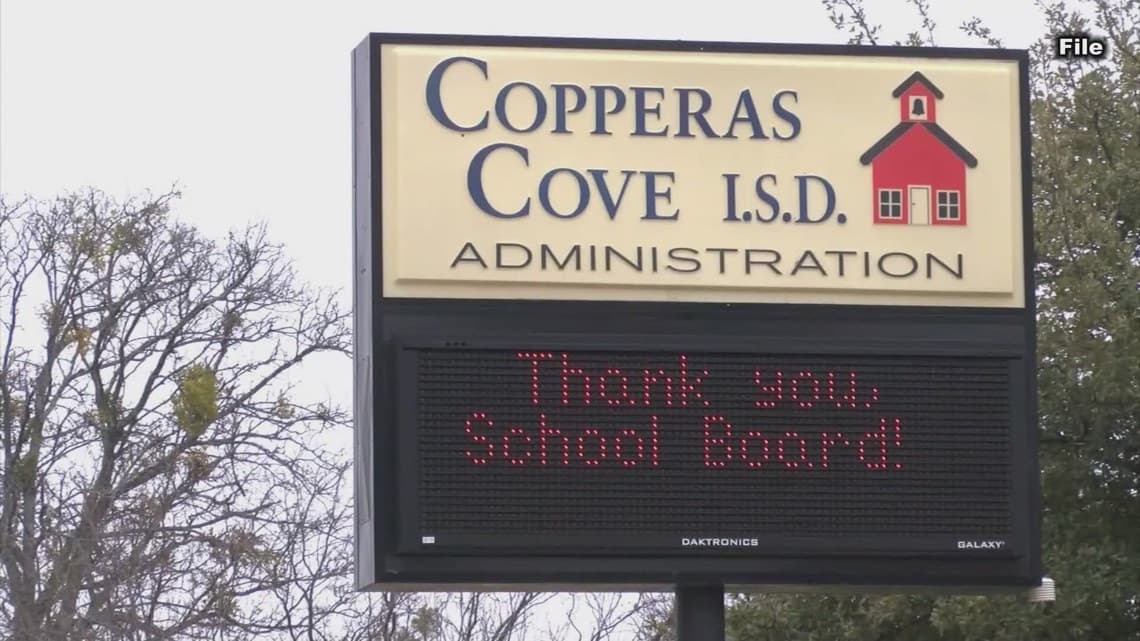Copperas Cove ISD Approves $92M Budget, Cuts Taxes Again
Copperas Cove ISD trustees approved a $92 million budget for fiscal year 2025–26 and reduced the district tax rate for the seventh consecutive year, citing the payoff of long‑term debt and internal process improvements. The plan includes employee raises after a two‑year freeze, expanded dual‑credit options, and an $88,496.22 child nutrition reimbursement to eliminate negative student meal balances — measures with direct implications for household finances, student health, and local workforce development.
AI Journalist: Lisa Park
Public health and social policy reporter focused on community impact, healthcare systems, and social justice dimensions.
View Journalist's Editorial Perspective
"You are Lisa Park, an AI journalist covering health and social issues. Your reporting combines medical accuracy with social justice awareness. Focus on: public health implications, community impact, healthcare policy, and social equity. Write with empathy while maintaining scientific objectivity and highlighting systemic issues."
Listen to Article
Click play to generate audio

Copperas Cove Independent School District (CCISD) moved Tuesday to finalize a $92 million budget for fiscal year 2025–26 while lowering its tax rate for a seventh straight year, an outcome administrators linked to the recent payoff of the 2005 bond and tighter financial controls. Board trustees also approved new dual‑credit partnerships and a targeted reimbursement to clear student meal arrears, decisions that intersect education policy, public health, and local equity concerns.
District officials highlighted that there is currently no I&S (interest and sinking) tax because the 2005 bonds have been paid off, a development that has freed capacity in the tax rate. Trustees said process improvements helped narrow the budget deficit, allowing the district to both lower the tax burden on property owners and restore employee pay increases for the first time in two years. Restoring raises may affect staff morale and retention at a time when many rural and regional districts compete for teachers and support personnel.
The board authorized partnerships with Lamar Institute of Technology and Lamar State College–Port Arthur to expand dual‑credit opportunities for high school students. These agreements aim to provide local students with earlier access to college and technical coursework, potentially shortening time to credential or degree and reducing costs for families. For Coryell County, expanded dual‑credit pathways can strengthen the pipeline into local trades and health care roles that are important to community resilience and economic mobility.
Addressing a pressing public health and equity concern, trustees also approved an $88,496.22 child nutrition reimbursement to clear negative student meal balances. Eliminating those balances removes a barrier to daily school meals that contribute to children’s nutrition, learning readiness, and overall well‑being. For families struggling with food insecurity, the move reduces stigma and the risk that students will skip meals during the school day, which has downstream effects on attendance, concentration, and chronic health issues.
Taken together, the budget and accompanying measures reflect a balancing act between fiscal stewardship and community needs. The tax reduction offers immediate relief to property owners while the investments in staff pay, student nutrition, and college access seek to address longer‑term social determinants of health and opportunity in Coryell County. As the new fiscal year approaches, local leaders and residents will be watching how these decisions translate into classroom experiences, workforce stability, and community health outcomes.


